By Cory R. Morea, Deer Management Program Coordinator
Florida Fish and Wildlife Conservation Commission
Division of Hunting and Game Management
Have you heard about Deer Management Units yet?
I hope you have seen or heard some news about the Florida Fish and Wildlife Conservation Commission (FWC) efforts to establish Deer Management Units to improve deer management in the Sunshine State. While we continue to work on a variety of deer-related projects, we especially are excited to be working with the public to establish a Deer Management Unit model that will ultimately shape the future of white-tailed deer management in Florida.
Deer Management Units (DMUs) will be subdivisions within Florida’s four hunting zones and are based on similar habitat characteristics and deer herd characteristics (e.g. breeding chronology, productivity, body size). DMUs will give us the framework for gathering data, including harvest data, at the local level. DMUs also would enable us to implement different deer management options preferred by deer enthusiasts. In order to understand the opinions and attitudes of the public on deer related issues, we hired a professional natural resource survey company, Responsive Management, to conduct a survey of hunters, farmers and other Florida residents. A total of 4,872 surveys were completed statewide with approximately 200 hunters, 100 farmers and 100 residents surveyed within each of the 11 proposed DMUs. This provided a tremendous amount of information and really helped us understand what many of you are thinking regarding deer and deer management. We then teamed up with Normandeau Associates, an environmental consulting firm based out of Gainesville, Florida, to help us kick-start this project within Hunting Zone D (Zone D). Normandeau staff brings a wealth of knowledge and experiences in working with the public on other natural resource related projects.
With Normandeau’s help, we already have completed the public input process for Zone D. Zone D consists of most of the Florida Panhandle and has two proposed DMUs: one situated north of Interstate 10 and the other south of the interstate. We hosted three public meetings at the end of January 2013, one each in Tallahassee, Marianna and Pensacola. We had about 250 attendees turnout to learn more about the DMU project and to express their preferences regarding deer management. The meetings consisted of a short presentation on unique characteristics of Florida deer, some results from the opinion survey, break-out tables to discuss various deer management issues and a question and answer session. All attendees were encouraged to fill out comment cards in addition to comments being captured at the break-out tables. For those unable to attend one of these meetings, we hosted two webinars and posted the public meeting presentation online. There also was an online comment form so anyone interested had multiple opportunities to participate.
 The next step was to develop a technical assistance group (TAG) comprised of volunteers from the public who had submitted an application during the public meetings or online. The Zone D TAG covered both proposed DMUs and included 22 members with a diverse background, but they all had one thing in common — they were passionate about deer management issues in Zone D. Several FWC staff attended these meetings and mainly were there to answer questions or provide background information. Normandeau lead the group as they reviewed survey results, went through all comments submitted and slowly worked toward hashing out goals and objectives for Zone D’s DMUs that they felt reflected the preferences of the public. They completed their work during two in-person meetings and one webinar. The TAG members did a great job in a short timeframe and we are fortunate that these individuals were dedicated enough to donate their time to help improve deer management for DMUs within Zone D.
The next step was to develop a technical assistance group (TAG) comprised of volunteers from the public who had submitted an application during the public meetings or online. The Zone D TAG covered both proposed DMUs and included 22 members with a diverse background, but they all had one thing in common — they were passionate about deer management issues in Zone D. Several FWC staff attended these meetings and mainly were there to answer questions or provide background information. Normandeau lead the group as they reviewed survey results, went through all comments submitted and slowly worked toward hashing out goals and objectives for Zone D’s DMUs that they felt reflected the preferences of the public. They completed their work during two in-person meetings and one webinar. The TAG members did a great job in a short timeframe and we are fortunate that these individuals were dedicated enough to donate their time to help improve deer management for DMUs within Zone D.
After the TAG finished their work, Normandeau compiled a summary report that included details on the process and included the goals and objectives for the two proposed DMUs within Zone D. In this case, the goals and objectives were determined by the TAG to apply to both DMUs. Once the summary report was submitted to the FWC, we quickly began work on specific proposals intended to accomplish what the TAG outlined while also reviewing the survey and public comment results to make sure nothing was missed.
So what’s next? We are in the process of evaluating how things went with Zone D and will be moving on to the other hunting zones during the second half of 2013. We hope to finish developing goals and objectives with public input for all proposed DMUs by the end of 2014 and the plan is to repeat this public input process every 5 years or so in order to keep up with the changing desires of the public in regards to deer management in Florida. Formal proposals and more information about this and other project may be found at MyFWC.com/Deer.
I mentioned earlier that we are working on other projects. We continue to monitor deer for chronic wasting disease (CWD) and other deer diseases. CWD is a contagious neurological disease affecting deer, elk and moose. It causes brain degeneration in infected animals resulting in emaciation, abnormal behavior, loss of bodily functions and is always fatal. This disease is similar to “mad cow disease” and there is no cure or vaccine. We are concerned about the possibility of this disease being introduced into Florida. The good news is that so far we have not found CWD in our state. However, more states continue to find this disease in their wild herds or in captive deer populations. We are looking for ways to better monitor the deer population for CWD, and we are considering more stringent regulations regarding the importation of captive, privately owned deer into the state, including a complete prohibition on importation like our neighbors Georgia and Alabama have in place. CWD is increasingly linked to captive deer populations and while a permit is required to import deer into Florida, this type of permit system has not prevented the spread of this disease. Just recently, Pennsylvania detected CWD in a captive deer facility and they are just one of many states that have detected CWD in either captive or wild deer herds. You may visit CWD-info.org for more information about CWD. If you see a sickly, extremely skinny deer, report its location to the CWD hotline, toll free (866) 293-9282. If you harvest such a deer, do not handle it but call the CWD hotline.

As a reminder, we have a phone survey of hunters after the end of each season to estimate deer harvest. If you get a call from Responsive Management asking you about deer, please take the time to complete this voluntary deer harvest survey. The survey is important because it helps us understand where and how deer are being harvested and will enable us to track trends in the deer harvest over time. Survey results help support the tradition of deer hunting in Florida, so hunters are encouraged to participate in the survey if contacted. Results from previous surveys may be found online at MyFWC.com/Deer.
All together, there is a lot of work being done for deer in Florida, and it wouldn’t be possible without deer hunters who support these efforts through the purchase of a deer permit or other license type that includes deer hunting privileges. The funds generated by the sale of these permits are designated to support deer management and research. To keep up-to-date on DMUs and other projects and for access to deer related information including the Strategic Plan for Deer Management, go to MyFWC.com/Deer. Good luck hunting!
Photo: Twildlife/Dreamstime.com (top)

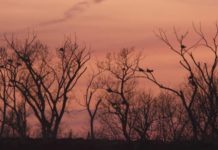
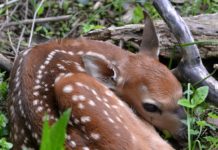
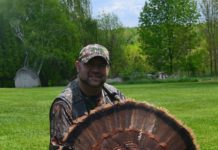
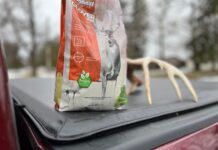

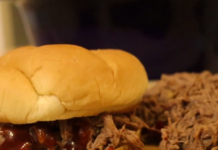

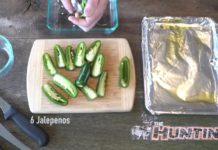
![The Best Deer Camp Chili [VIDEO] Deer Chili Ingredients, Tomatoes, Chili Spices](/wp-content/uploads/2015/10/Deer-Chili-Deer-Camp-Recipe-218x150.jpg)
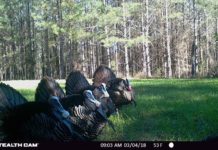
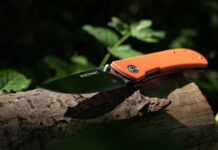
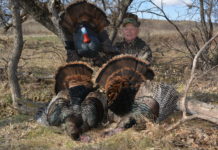

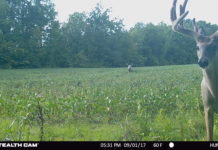
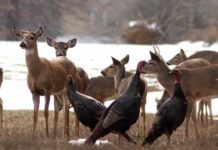
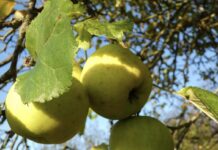
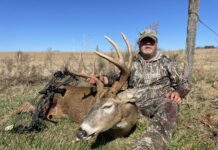
![How to Call Elk Early in the Season [VIDEO]](/wp-content/uploads/2016/08/byers003-218x150.jpg)

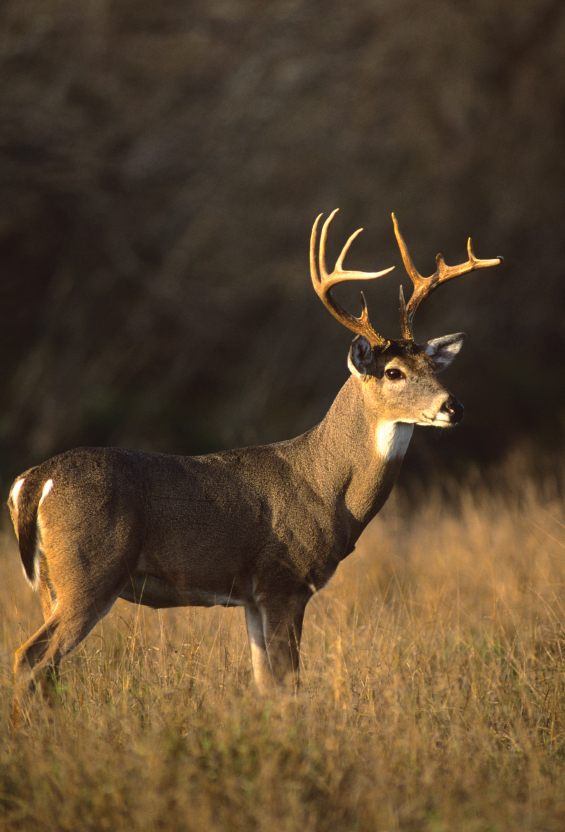


![Idiots Disturb Hunter: How Would You Have Handled It? [VIDEO]](/wp-content/uploads/2015/10/DSC00110-e1474487693878-100x70.jpg)
![Albino Buck Shocked to Shed His Antlers [VIDEO]](/wp-content/uploads/2015/10/AlbinoDeer-100x70.jpg)